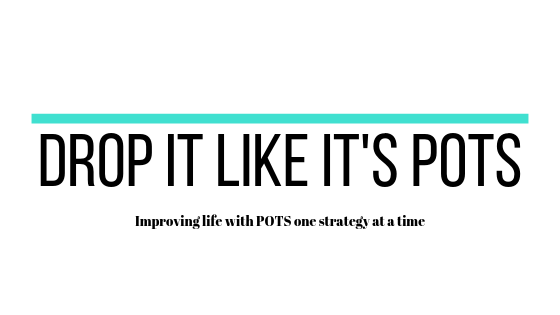During last year’s conference, I became like a Dysautonomia maniac (dysautonomaniac if you will)- feverishly writing notes and attending as many sessions as I could. This year, I wanted to be more selective with the lectures I chose and be more laid back about it all. I took away a few new insights from the conference and I’ll share them with you below.
Note- Some of these lectures’ material overlap with their presentation from last year. I left out those parts and mention when I do so. To see last year’s notes check out: Day 1 and Day 2 Notes, Day 3 Notes, and Day 4 Notes.
Microbiota-Gut-Brain Axis in Autonomic Disorders- Dr. Laura Pace
- The microbiota can exert influence on the nervous system, GI system, enteroendocrine system, and immune system.
- They can also influence inflammation, cravings, satiety, mood, behavior, and a host of other things I couldn’t write down fast enough.
- The GI system is a major interface of other systems.
- Things that determine microbiota: diet (fiber content, sugar, proteins, fats, food additives, etc.), GI motility, medications, and prior diet/exposures/infections.
- Microbiota can secrete substances into the blood that interact with the nervous system.
- Gut microbiota can influence the development of the nervous system.
- I lost a few minutes of the lecture due to connectivity issues, so I missed a key transition in Dr.Pace’s lecture.
- She spoke about the importance of testing properly for GI motility issues in patients with dysautonomia that have significant GI issues. This part is very similar to her lecture last year, so I won’t go into any more depth on that here.
- Stool testing isn’t a good proxy for microbiota testing.
- Dr. Pace believes SIBO is over-diagnosed and over-treated.
- She recommends a diet with a lot of complex carbohydrates and lean proteins, and very little processed foods and simple carbs to support the microbiota.
- Dr. Pace thinks that for the most part, probiotics are a waste of money.
- She hopes that there will be targeted microbiota therapies within a few years.
Dysautonomia in Post-COVID Syndrome (Long COVID)- Dr. Mitchell Miglis
- The most updated phrase for long haul COVID is PACS (Post-acute COVID syndrome).
- Most that develop PACS have mild pre-existing conditions such as exercise induced asthma, irritable bowel syndrome, etc
- Almost 50% of POTS patients report an infectious trigger.
- There was some overlap in Dr. Miglis’ lecture from last year, so I didn’t take notes on those parts. In these parts, he was primarily discussing the body of research on post-viral illnesses from COVID-like illnesses such as SARS, MERS, etc.
- The severity of PACS symptoms don’t necessarily correlate with acute COVID severity.
- The prevalence of PACS is estimated at 10-50% of people who had COVID-19. The symptoms are diverse and unpredictable.
- It is hard to tell exactly how many PACS patients have Dysautonomia. The studies vary on this, but it could be up to 50% by some estimates.
- One small study showed slight improvement in PACS upon receiving the vaccine. In a larger survey, the vaccine’s effect seemed to be a wash- most saw no change and an equal number improved vs. got worse from it.
- They’re not sure yet what causes PACS. It could be due to tissue injury, it could be autoimmune, or another of the many speculated mechanisms.
- Some people with PACS have significant post-exertional malaise (like ME/CFS patients), so they may need to be careful if they choose to go through a graded exercise program for the Dysautonomia they may have developed. As Dr. Peter Rowe says, it is crucial to stabilize the cardiovascular system before jumping into exercise.
- I goofed up while I was recording this, so I’m not positive on the wording here. 1.5-2.5% (5-8 million) Americans have PACS (or possibly that figure corresponds to long-COVID related Dysautonomia specifically). Either way, that is staggering. Dr. Miglis also provided these figures for the world and it was even more staggering.
- Dr. Miglis sees PACS POTS patients recover faster than non-COVID POTS patients. It is possible that this is because the PACS group is getting diagnosed faster than other post-infectious POTS groups.
- He has not seen any COVID-19 vaccine-induced Dysautonomia.
- Dr. Miglis also hasn’t seen an long-lasting vaccine effects in Dysautonomia patients.
Common Underlying Diseases that Cause Dysautonomia- Dr. Brent Goodman
- Deconditioning does NOT cause autonomic dysfunction. It can exacerbate it, of course, but not cause it.
- The autonomic nervous system is the body’s check engine light.
- Disorders of the ANS may change over time. The ANS may repair itself. Sometimes this happens in a maladaptive way.
- As a result of the ANS changing over time, tests may need to be repeated and treatment may need to be changed.
- I couldn’t write down many of the tests and conditions fast enough, but you can find some of those in my notes from last year.
- Testing for GI dysmotility needs to be looked at all along the GI tract. A gastric emptying test is not sufficient.
- GI dysmotility is a form of autonomic failure in Dr. Goodman’s opinion.
- No individual with significant GI symptoms and dysautonomia should be given a diagnosis of irritable bowel syndrome (“whatever the hell that is”, said Dr. Goodman) without first testing for dysmotility.

- Adrenal dysfunction, thyroid disease, mastocytosis, paraganglioma/pheochromocytoma, and others can mimic Dysautonomia.
- There are very few primary autonomic disorders such as pure autonomic failure.
- Breathlessness is common in dysautonomia because respiration has ANS control.
- 30-50% of POTS has an infectious trigger and it’s likely that the immune system response creates the ANS dysfunction.
- Dr. Goodman believes 20-30% of POTS patients have undiagnosed Sjogren’s syndrome.
- The tests for Sjogren’s are not very accurate. The lab test catches about 10% and then salivary biopsy is 25-75% accurate, although Dr. Goodman believes the figure is closer to 25%.
- Dr. Goodman believes the glymphatic system (brain waste removal) may play a role in neurodegenerative and neuroinflammatory disorders.
- It is likely that individuals with Dysautonomia have an issue with the glymphatic system as well as the blood brain barrier.
- The glymphatic system is most active at night during deep sleep. Hyperadrenergic POTS patients are not reaching deep sleep and therefore not removing brain waste properly.
- Dr. Goodman wonders if this glymphatic system dysfunction could play a role in brain fog.
Autoimmunity and Mast Cell Dysfunction in Dysautonomia- Dr. Artur Federowski
- 16% of POTS patients have another autoimmune disease.
- Dr. Federowski believes autoantibodies interact with g-coupled protein receptors causing dysfunction in the autonomic nervous system.
- Dr. Federowski is working with a unique assay called the Tango assay that is more sensitive to detecting the differences in autoantibody activity in healthy controls vs. patients with Dysautonomia.
- We are not there yet, but we are getting closer to identifying the evidence that clearly shows that POTS is a chronic autoimmune disease.
- Dr. Federowski does not recommend that patients with Dysautonomia get their autoantibodies evaluated through CellTrend. It doesn’t seem like he’s trying to knock CellTrend, but he does not think their assays are specific enough to provide a clear picture. Autoantibodies’ presence is just part of the picture, but how they act upon the cell is what really matters.
Gluten-Free Diet in POTS- Kate Zha
- Kate, a 4th year medical student, works with Dr. Blitshteyn for this research.
- Because studies show that POTS patients have a significantly higher prevalence of Celiac disease compared to healthy controls, and some patients reports improvement of symptoms on a gluten-free diet, this group decided to investigate the effects of a gluten-free diet on POTS in this small study.
- The team used the Compass 31 questionnaire of autonomic symptoms and a self-assessment of symptomatic improvement. The sample size was around 20 subjects. The subjects were all non-Celiac patients.
- The mean self-reported symptoms improvement after the gluten-free diet was 50.5%. This seems high, I wonder if I wrote this down wrong.
- The mean levels in orthostatic intolerance from a gluten-free diet went from 32 to 18.
- GI and vasomotor improvement statistics were also significant. There was some degree of sudomotor and pupilomotor improvement.
- They compared their results to a study by DiPaola that showed a 13.1% improvement in Compass 31 score with a high salt diet and pharmacological agents. Their gluten-free diet study showed a Compass 31 score improvement of 33.9%.
- Zha and her team acknowledge the limitations of this small study including: recall bias, no control group, etc. They also did not compare tilt table results before and after the diet, which would be a useful objective measure. In the future, they would like to do this.
- A good question was posed in the Q & A- is this improvement more of a carbohydrate thing, an increase in fruits and vegetables and decrease in processed thing, or a gluten thing?
- Dr. Blitshteyn recommends all of her patients that do not improve on a high-salt and fluids diet to do 4 week trial of a gluten-free diet.
Did you attend any of the sessions at the the 2021 Dysautonomia International Conference? What did you learn?
Disclaimer: I am not a medical professional. Statements on this site are not meant to be taken as medical advice. These statements reflect my personal experiences having mild-ish post-viral POTS and ME. Due to the wide spectrum of these diseases, comorbidities, and everyone being different, your experiences may be very different than mine.
Note: If you post a comment, this site does NOT have a feature to notify you of responses to your comment. I have not found a good solution for that yet. However, I usually respond to every comment in a timely manner, so be sure to check back.

2 Comments
Thanks for sharing this info. And even though I was listening in on some of this with you, it still makes my head swim to process the info. I was happy to see Dr. Goodman seems to agree that the term IBS is far too vague as I myself feel it’s used when they just don’t know what’s going on with the GI. I was also interested when I heard POTS referenced as an autoimmune. At least they’re getting closer to identifying it? Still, so much more to study & learn. I was actually hoping they would’ve learned more from PACS patients, but I guess it’s too soon still for all that info to be documented and studied.
Yeah, PACS has certainly placed more importance on POTS, other forms of Dysautonomia, and ME/CFS, but it will take time to see the fruits of this.